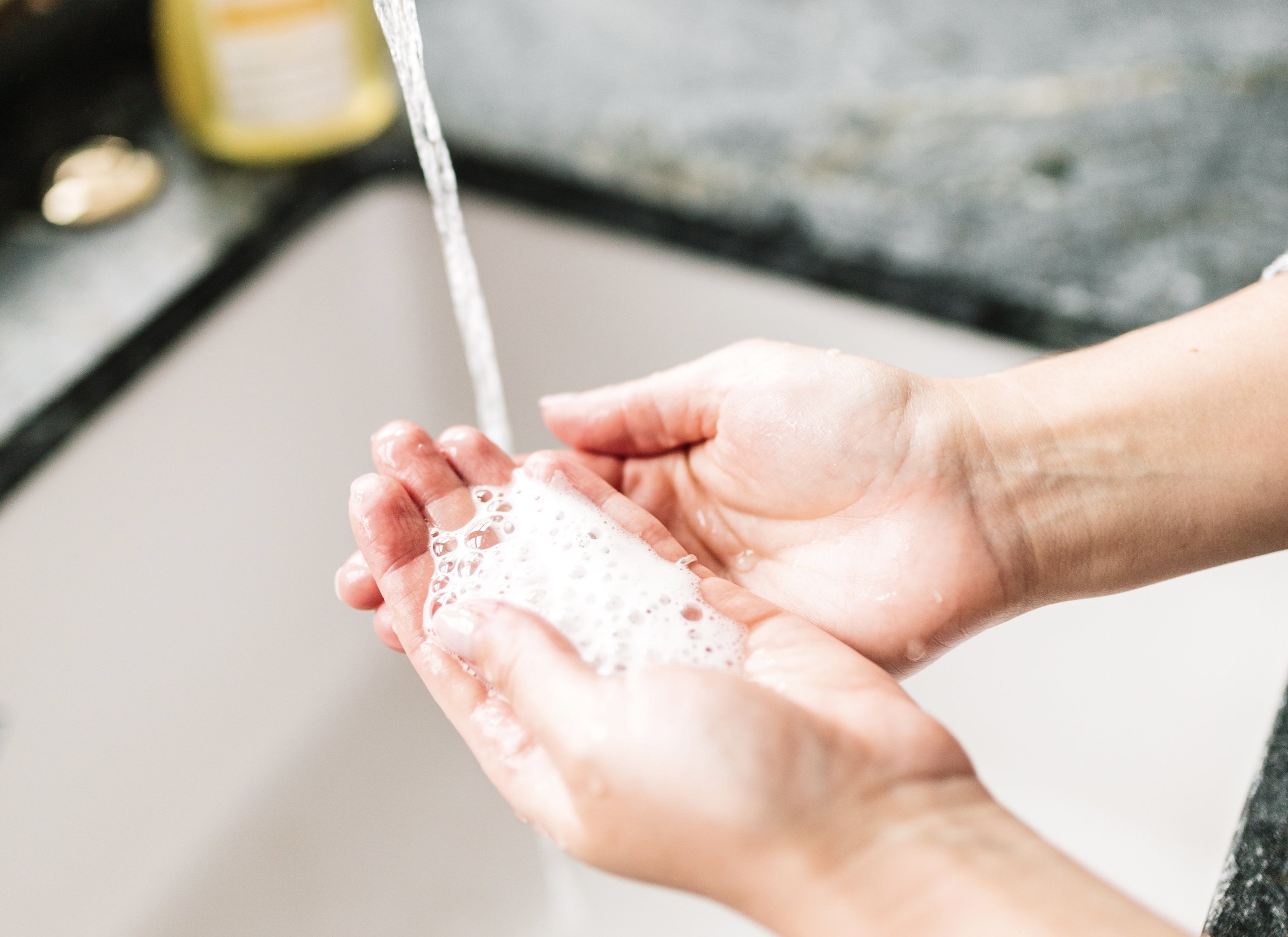WHAT'S NOT IN YOUR HAND SOAP - MATTERS MOST
The quality of your hand soap is not only determined by what it has, but also by what it lacks. Choose wisely, because what you wash your hands with can have a significant impact on your health and wellbeing.
Discover the ingredients that we never use in our hand soap and learn why it's important for your health and safety.
Formaldehyde: Formaldehyde is often present in soaps along with chemicals that release formaldehyde, known as Formaldehyde Releasing Preservatives (FRPs). FRPs, such as Quaternium-15, DMDM hydantoin, Imidazolidinyl urea, and Glyoxal, are commonly used as preservatives in hand soaps. Exposure to formaldehyde is linked to skin irritation and allergy, with a 2015 study estimating that around 12% of the population is allergic to formaldehyde. Similarly, FRPs are also linked to irritation, and a retrospective study conducted by the North American Contact Dermatitis Group showed that around 22% of the population is allergic to Quaternium-15. Formaldehyde is also a known carcinogen.
Parabens & Phthalates: Parabens and Phthalates are both frequently used as preservatives in hand soaps. They have been associated with skin irritation and hormone disruption, which can potentially impact the reproductive system.
Synthetic Fragrances: When a product’s scent is described as ‘fragrance,’ it can include several undisclosed chemicals that are commonly associated with triggering allergies, respiratory issues, and skin irritation. Fragrance is one of the most frequently named substances in personal and cosmetic care products that cause eczema.
Alcohol: Alcohol is often used as a preservative, but it can strip away the skin’s natural oils, leading to dryness, irritation, and, in severe cases, cracking of the skin.
Propylene Glycol: Propylene glycol is a synthetic compound added to various commercial soap products to help maintain moisture. It has been linked to dermatitis and hives. Anyone with eczema or delicate skin should avoid this ingredient.
Sodium Lauryl Sulfate (SLS) & Sodium Laureth Sulfate (SLES): SLS and SLES are frequently added to hand soap to help create a rich lather. However, these chemicals can remove the skin’s natural oils, leading to dryness and irritation. Some studies also suggest that SLS and SLES may be carcinogenic.
Ethanolamines (DEA/MEA/TEA): Diethanolamine (DEA) is easily absorbed through the skin and combines with the nitrate preservatives commonly added to soaps to create nitrosodiethanolamine (or NDEA). NDEA is a potent carcinogen, most strongly linked to the development of kidney and liver cancers. Pregnant women should be especially cautious of DEA, as it interferes with the body’s ability to absorb choline, which unborn children need for proper brain development. This also applies to triethanolamine (or TEA), which is a derivative of DEA. If you are pregnant or nursing, you should definitely avoid this ingredient. Those with delicate skin or eczema should consult their dermatologist before using a product containing these ingredients.
Get Our Cheatsheet for Skincare Ingredients to Avoid!
Make it easy to decipher product labels and choose safer skincare options. Download now and keep your skin healthy and glowing!


